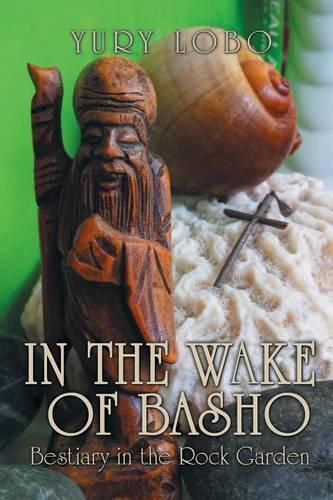Readings Newsletter
Become a Readings Member to make your shopping experience even easier.
Sign in or sign up for free!
You’re not far away from qualifying for FREE standard shipping within Australia
You’ve qualified for FREE standard shipping within Australia
The cart is loading…






This title is printed to order. This book may have been self-published. If so, we cannot guarantee the quality of the content. In the main most books will have gone through the editing process however some may not. We therefore suggest that you be aware of this before ordering this book. If in doubt check either the author or publisher’s details as we are unable to accept any returns unless they are faulty. Please contact us if you have any questions.
According to the author Yury Lobo this book just happened. After very intense submerging into Japanese culture, history, art and poetry one early morning the whole idea of the book came to him as one piece: to introduce Shakespeare to Japan at least two centuries before it actually happened. The idea (however as crazy as it may sound) is not quite too far away from reality: it could truly have happened that a Roman Catholic Japanese with initial traditional samurai background escaped to Christian Macao in 17th century, where he was introduced to English, which became in time his second mother tongue und through English was captured with the genius of Shakespeare. Of course Haruki Okami’s core was still Japanese. Once a samurai, forever a samurai. The tiger doesn’t change his stripes. His Basho and Shakespeare-influenced existential poetry is a sort of crossover or fusion of both languages, cultural, poetic and religious traditions of Japan and England. Hokku married with Shakespearean blank verse. Haruki Okami (the fictitious poet) was impressed by Shakespeare like French artists were impressed by Japanese art in the second half of the 19th century which brought impressionism to life. His impressionistic poetry is sort of extended minimalism with more attention to transient details. Important is the architecture of Haruki Okami’s verse: 3 lines: long, shorter one and the shortest. It is sort of backward steps or stairway arranged sense wise in ascending order. The reader is kind of going downstairs but actually he is going up. The suspension is growing toward the climatic end and ends up with an ellipsis […] inviting the reader to fill up the omitted words, connotations and meanings (the reader can find all this intended omissions in extensive Notes which covers a significant part of Japanese and English history, the animal world, religious symbols and traditions).
$9.00 standard shipping within Australia
FREE standard shipping within Australia for orders over $100.00
Express & International shipping calculated at checkout
This title is printed to order. This book may have been self-published. If so, we cannot guarantee the quality of the content. In the main most books will have gone through the editing process however some may not. We therefore suggest that you be aware of this before ordering this book. If in doubt check either the author or publisher’s details as we are unable to accept any returns unless they are faulty. Please contact us if you have any questions.
According to the author Yury Lobo this book just happened. After very intense submerging into Japanese culture, history, art and poetry one early morning the whole idea of the book came to him as one piece: to introduce Shakespeare to Japan at least two centuries before it actually happened. The idea (however as crazy as it may sound) is not quite too far away from reality: it could truly have happened that a Roman Catholic Japanese with initial traditional samurai background escaped to Christian Macao in 17th century, where he was introduced to English, which became in time his second mother tongue und through English was captured with the genius of Shakespeare. Of course Haruki Okami’s core was still Japanese. Once a samurai, forever a samurai. The tiger doesn’t change his stripes. His Basho and Shakespeare-influenced existential poetry is a sort of crossover or fusion of both languages, cultural, poetic and religious traditions of Japan and England. Hokku married with Shakespearean blank verse. Haruki Okami (the fictitious poet) was impressed by Shakespeare like French artists were impressed by Japanese art in the second half of the 19th century which brought impressionism to life. His impressionistic poetry is sort of extended minimalism with more attention to transient details. Important is the architecture of Haruki Okami’s verse: 3 lines: long, shorter one and the shortest. It is sort of backward steps or stairway arranged sense wise in ascending order. The reader is kind of going downstairs but actually he is going up. The suspension is growing toward the climatic end and ends up with an ellipsis […] inviting the reader to fill up the omitted words, connotations and meanings (the reader can find all this intended omissions in extensive Notes which covers a significant part of Japanese and English history, the animal world, religious symbols and traditions).